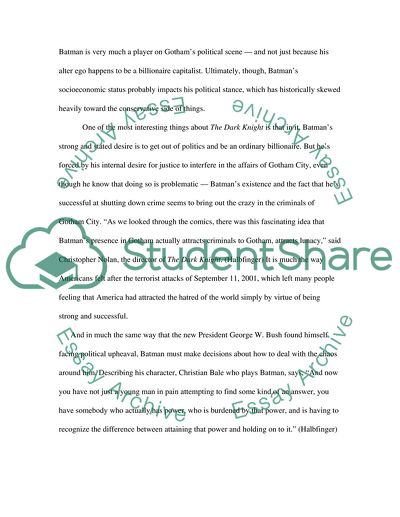Cite this document
(The Personality of Batman Case Study Example | Topics and Well Written Essays - 1750 words, n.d.)
The Personality of Batman Case Study Example | Topics and Well Written Essays - 1750 words. https://studentshare.org/visual-arts-film-studies/1550436-rhetoric-of-batman
The Personality of Batman Case Study Example | Topics and Well Written Essays - 1750 words. https://studentshare.org/visual-arts-film-studies/1550436-rhetoric-of-batman
(The Personality of Batman Case Study Example | Topics and Well Written Essays - 1750 Words)
The Personality of Batman Case Study Example | Topics and Well Written Essays - 1750 Words. https://studentshare.org/visual-arts-film-studies/1550436-rhetoric-of-batman.
The Personality of Batman Case Study Example | Topics and Well Written Essays - 1750 Words. https://studentshare.org/visual-arts-film-studies/1550436-rhetoric-of-batman.
“The Personality of Batman Case Study Example | Topics and Well Written Essays - 1750 Words”. https://studentshare.org/visual-arts-film-studies/1550436-rhetoric-of-batman.


